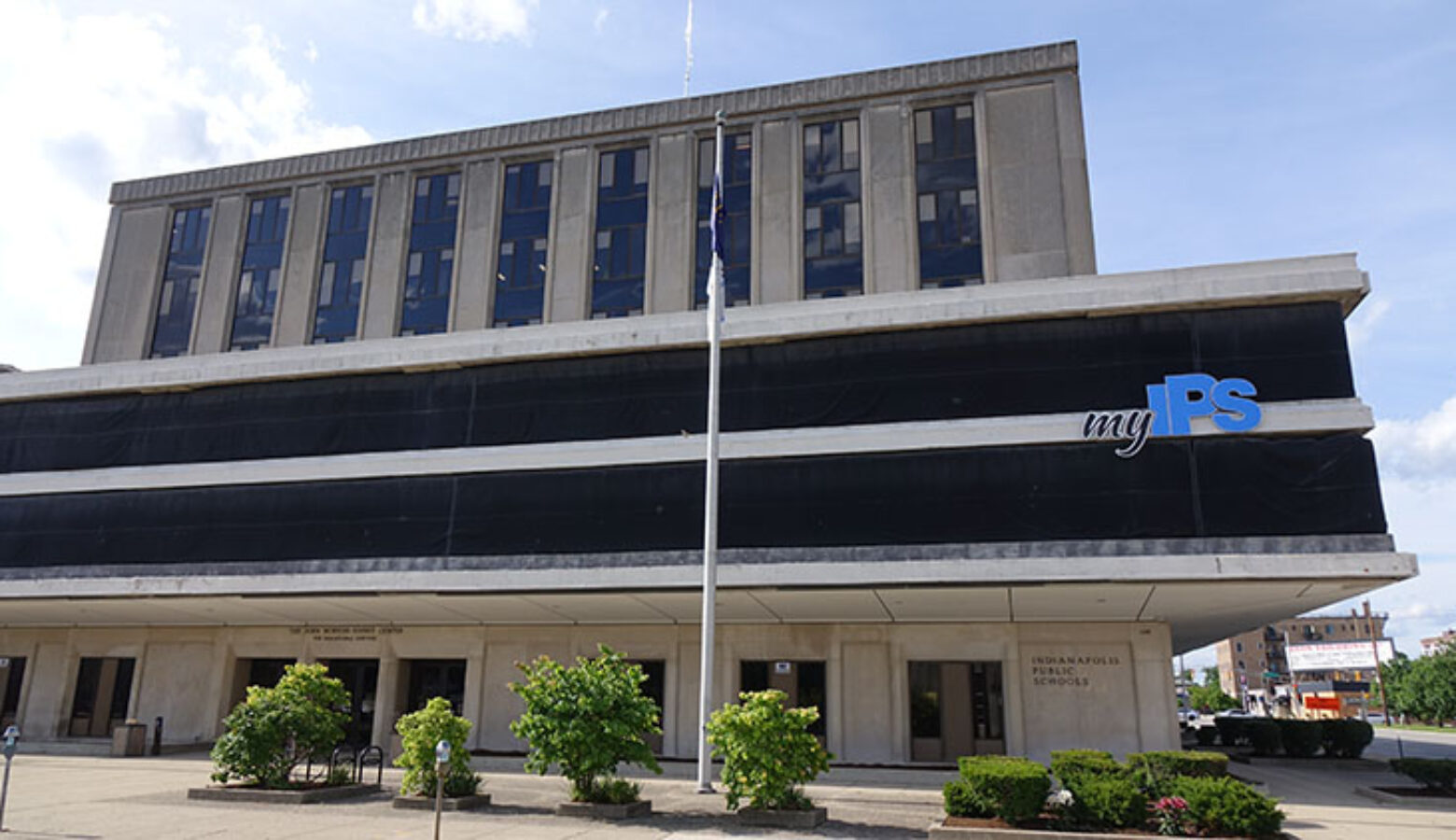Indianapolis Public Schools sues state, argues district is exempt from selling buildings to charters for $1

IPS is asking the Marion County Superior Court to declare the district meets a new exception for the so-called “$1 law” and proclaim a provision does not apply to the district that allows the Indiana Department of Education to force the closure of underutilized schools.
The district is also asking for a preliminary injunction to prevent the IDOE from enforcing the law so it can proceed with the potential sale of a recently closed school building.
Document: IPS complaint for declaratory injunctive relief
Document: IPS motion for preliminary injunction
The $1 law was passed by lawmakers in 2011 and revamped this year. The aim of the law is to give charter schools, which do not receive property taxes for facilities, access to vacant buildings. But it remains controversial because traditional public school districts do not want to give facilities to charter schools that will compete for students.
The civil suit comes after years of IPS lobbying the General Assembly to carve the district out of the law as it prepared to shutter multiple schools to address dwindling enrollment. But GOP leaders and school choice advocates have been weary of giving up potentially free schools and letting the district control how it disposes of empty buildings.
IPS officials have touted their standing as the only Indiana corporation to willingly share its referendum funds with charter school partners as a reason to make an exception.
Then this year, lawmakers added an exemption to the law for a district that shares funds from a property-tax ballot referendum with “an applicable charter school,” among other requirements.
Possible exemption
IPS officials interpret the updated law to mean they are now exempt. In 2021, the school board voted to approve sharing funds from its 2018 property-tax referendum with charter schools the district partners with.
“In truth, IPS distributes over millions of dollars to dozens of schools that meet these requirements, but the exception doesn’t require anything else,” attorneys for IPS wrote in the lawsuit.
Last month, the IPS Board began the process to sell two of six shuttered school buildings — Raymond Brandes School 65 and Francis Bellamy School 102 — as part of a major overhaul to address a slew of academic and facility challenges. VOICES, a nonprofit that offers youth programs, is interested in purchasing School 102 so it can expand.
But on Aug. 15, Jenner sent a letter to IPS Superintendent Aleesia Johnson and Board President Venita Moore to “remind” them that the district is subject to the law and to submit a notice of the building closures by Aug. 28.
In the lawsuit, IPS argues that Jenner is “erroneously asserting” the law applies to the district.
“The IPS Board is committed to complying with Indiana law, believes it is doing so, and believes Indianapolis Public Schools qualifies for the exemption from the $1 charter law,” IPS Board President Venita Moore said in a statement. “The IPS Board believes the courts will provide needed clarity regarding the exemption from the $1 charter law, and IPS will abide by the ultimate decision from Indiana courts.”
But some charter advocates and the legislation’s co-author disagree. They’ve previously said the updated law requires a district to partner with charter schools before seeking property-tax referendum approval from voters and share property tax dollars proportionately.
Brandon Brown, CEO of The Mind Trust, called the lawsuit an “unfortunate escalation in the district’s ongoing efforts to circumvent state law.”
“By choosing a potentially long and divisive legal battle instead of collaboration, IPS is closing the door on longstanding partners who want to work alongside the district in service to Indianapolis students,” Brown said in a statement Monday.
The Indianapolis-based nonprofit has championed charter school expansion and education reform measures in the city. In 2015 it partnered with IPS and the city to forge the unique charter school partnerships known as innovation network schools. Now, there are 22 such schools in IPS.
Indiana Attorney General Todd Rokita and the 10 appointed members of the State Board of Education are also named in the lawsuit.
Spokespeople for Jenner and Rokita did not immediately respond to requests for comment.
In past months, IPS has faced questions over its handling of closed buildings. The Indiana Charter School Network filed a complaint with Rokita’s office in December that IPS was not following the $1 law when the district board first approved the closure of the six schools. IPS was found to not have violated the law.
Contact WFYI education editor Eric Weddle at [email protected] or call (317) 614-0470.

